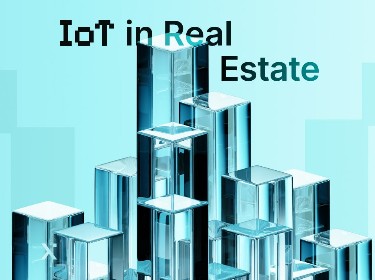Metaverse technology is establishing its presence across multiple sectors, including virtual gaming, business, education, social initiatives, fashion, and even real estate.
The possibilities of the metaverse touch on all areas of our lives and offer us new options for using virtual reality. Virtual venues can be created for events and small gatherings in the metaverse, land can be sold, houses can be purchased. Immersive travel is possible too.
This article provides top 8 use cases for the metaverse, as well as the myriad benefits associated with it.
Check out the video below if you want to quickly grasp the key metaverse use cases. In it, our business analyst talks about the most interesting options of how your business can leverage this groundbreaking technology.
Metaverse key prospective use cases
Metaverse is a broad concept. Below are the key areas, such as games, working environment, tourism, education, etc. where thousands of VR developers from all over the world are already working.
Games
![]()
The metaverse in gaming is a rapidly expanding domain, where users engage in interconnected digital universes that blend augmented reality and interactive enhancements. The sector is anticipated to see significant growth, with forecasts suggesting the user base could reach 943.3 million by 2030.
Metaverse games have some specific characteristics:
- The game product acts as a platform that provides gameplay flexibility and allows participants to create their own content and games within and according to the rules of a specific metaverse.
- Games represent a fully-fledged social environment in which it is possible to contact other users; this fundamentally distinguishes metaverse games from regular VR game development.
- The ability to play and earn cryptocurrency is the defining economic component of metaverse gaming, so now the gameplay can bring not only mental but also material satisfaction.
- Due to the compatibility of the metaverse architecture, the portability of in-game NFT assets ensures permanent ownership of specific digital assets.
- A mixed reality experience allows players to easily and seamlessly switch between different formats of interaction with the virtual environment.
A notable example of a metaverse game is Decentralized, an interactive world that provides players with play-to-earn capabilities.
The Sandbox is highlighted for its ability to let players design games and digital wearables.
Axie Infinity allows players to collect, breed, raise, and battle fantasy creatures called “Axies,” which can also be traded as digital assets on the blockchain.
It is predicted that in 2026 metaverse games will be able to provide a fully immersive experience due to the development of suh technologies as haptic feedback suits and advanced VR headsets.
In 2026, cybersecurity measures in metaverse gaming are projected to become more robust, with two-factor authentication and biometric verification becoming standard.
Additionally, the expansion of the metaverse will likely intensify discussions around the ownership of digital assets and ethical issues, such as the fair distribution of wealth and the potential for exploitation in virtual economies.
Check out the article on GameFi – a new popular term among the crypto community
Working environment
The growing popularity of metaverse technology is bringing significant changes to the traditional business processes. Projects that are being rolled out today will enable:
- Remote work in virtual space. The introduction of the metaverse will make the employee’s physical presence in the office unnecessary.
- Interaction with colleagues in workrooms. With the advent of virtual offices and the development of metaverse technology, communication and collaboration in coworking spaces will be realized via virtual reality devices, and the traditional office will become obsolete.
- Organization of remote meetings. Today, these meetings are conducted on Skype and Zoom, but thanks to the development of metaverse technology they will one day be held in a virtual room, where each participant will be present as an avatar.
Examples like Facebook’s Horizon Workrooms and Microsoft Mesh illustrate how virtual collaboration can be as engaging as physical interactions, with tools allowing employees to interact in a virtual space as avatars.
Tourism
One of the most forward-looking ways to use metaverse is virtual tourism. Technology lets you travel in a virtual space, so you don’t have to physically visit the locations that excite you. Experts claim that the creation of an immersive digital environment combining virtual and augmented reality will be a breakthrough in the field of virtual tourism.
We’re already witnessing the start of 360-degree virtual tours. For example, ZEPETO World allows users to virtually explore Korea, demonstrating the draw of digital tourism, while BCB Group’s metaverse city offers affordable virtual tours of famous landmarks. Saudi Arabia’s Royal Commission for AlUla has even introduced a UNESCO World Heritage Site into the metaverse, allowing for virtual exploration of ancient cities.
Meet QTS – a VR real estate solution for generating 360-degree virtual tours
Education
![]()
The educational potential of the metaverse looks just as promising. Metaverse technology is fundamentally changing the approach to learning. The metaverse is anticipated to significantly impact educational methods by providing immersive learning environments that overcome traditional barriers of distance, time, and cost. It’s expected to support a wide range of educational activities from interactive learning in schools to professional training and accreditation.
The virtual learning environment might also eliminate the language barrier. The technology could allow people from different countries to study in a single virtual space without social or linguistic complications.
The introduction of the metaverse school and virtual learning space will enable people from the most remote corners of the world to receive a quality education in conditions perfectly adapted for the assimilation of new knowledge and experience.
Fashion
As one of the most progressive areas of the economy, the fashion industry is actively introducing new trends related to the metaverse technology. The most striking example is Gucci, which created the “Metaverse design” category on Roblox. Users can already buy exclusive outfits from the famous fashion house on the gaming platform.
A while ago a digital Gucci bag was sold for $4,000 on the platform, an indication that the virtual fashion industry is already becoming a significant source of profit for the leading market players.
In light of the increasing popularity of NFT development services, the day will come soon when the exclusive virtual collections of all famous fashion houses will be sold for millions of dollars on numerous fashion websites and in virtual boutiques.
Shopping
![]()
Shopping in the metaverse is expected to continue its evolution, leveraging augmented reality and virtual reality to create immersive and personalized experiences.
Many experts believe that one of the most promising applications of metaverse technology is virtual shopping. Retailers are exploring various applications, from NIKE selling branded NFTs to Forever21 establishing virtual storefronts.
Zara has presented its first collection for people and avatars. Physical and virtual models can now be purchased at network stores anywhere in the world. The collection was developed in collaboration with a South Korean clothing brand, Ader Error.
In the ADERERRORXZARA virtual store on the Zepeto platform, all the items from the innovative collection are available. Thus the famous Spanish retailer is taking its first step into Web 3.0. The Zepeto platform is an incredibly popular meta-universe with more than 200 million users and a high growth rate over the past year.
Ever thought of what it takes to build a metaverse project? Then check out our article to learn everything about it
Social networks/entertainment
With a push from some energetic promotion, the metaverse technology will radically change the world of social networks and online entertainment. We can expect more social platforms to incorporate virtual spaces where users can interact in more lifelike, three-dimensional ways.
In entertainment, the metaverse may offer new forms of immersive experiences, such as virtual concerts where attendees control avatars, or narrative experiences that users can step into and influence.
Ariana Grande’s concert series in the Fortnite universe showcased how virtual events in the metaverse can offer immersive entertainment experiences, with other artists like Justin Bieber and Travis Scott also exploring metaverse-based performances.
Real estate
![]()
One of the core features of the metaverse is its ability to provide a client with the ultimate virtual reality experience. It’s no surprise that using the metaverse to showcase properties for sale or rent is a promising niche in the real estate sector.
The estate agents don’t have to travel to the site, and the clients don’t need to waste their time viewing dozens of houses, apartments, offices, or shops. Prospective buyers will instead be able to take a metaverse real estate tour, which will be almost indistinguishable from the experience of actually being there on the premises. Any client will be able to explore all options in real-time.
Moreover, a virtual tour can be adapted to specific tastes. Design, scaling, and soundtrack can all be customized for the individual client. In addition, augmented reality in the form of popups will make a metaverse virtual real estate site visit even more informative and useful.
Rising popularity of digital assets and virtual real estate ownership are the key trends that propel the development of the metaverse in the real estate sector. According to Expert Market Research, the metaverse real estate market was valued at around $1.14 billion in 2023. It’s expected to expand at a CAGR of 48.60% from 2024 to 2032, culminating in an estimated market size of $12.27 billion by 2032.
Introduce yourself to VResorts – a VR platform for hotel and resort owners
What are the challenges in creating the metaverse?
Although today many consider the metaverse a promising technology that can lead the way to fully immersive virtual reality, it is still a “gray area”. In other words, so far the industry lacks the capacity to conduct a comprehensive study of the risks posed by the metaverse technology.
The main challenges faced by the metaverse developers are as follows:
- Identity and reputation problems. The issue is how a person will be identified in a virtual environment. After all, in theory any other person or even a bot can easily imitate you in the metaverse. This is why reputation should be a key element of authentication and proof of confidence in a specific object. However, there remains a risk that facial features or voices could be faked.
- Data security issue. The development of metaverse technology makes it necessary to raise cyber security measures to a radically new level. There will be a need to create new approaches to the protection of personal data, privacy, and digital property. It is reckoned that in the metaverse environment users may be required to provide much more personal data than they do today in order to guarantee more accurate identification and enhanced security.
- Financial system problems. It is already clear that metaverse will implement its own version of the virtual market, which would combine fiat money and cryptocurrencies and ensure their fast and secure exchange. This will create the need for a new unique transaction verification system to safeguard the security of users’ finances.
- Legal regulation problems. With the introduction of virtual spaces, it will be necessary to establish the laws that will govern the industry. The Metaverse is extremely vulnerable in terms of the rights of its participants, since it is not legally regulated.
- Property issue. One of the chief tasks of metaverse developers is to create a single system that could provide digital asset verification analogous to NFTs’ proof of ownership in the real world.
- Community problem. The metaverse must be a place where users can feel they are members of a single community and maintain good working relationships. For this to happen, haptics and motion capture technologies must improve significantly.
- Perception of space and time. Being inside a virtual reality, a person perceives time and space differently. Full immersion in the metaverse can result in users spending much more time in virtual reality than they had planned, raising the question of how the user will keep in touch with the real world while experiencing distorted time inside the metaverse. As for the perception of space, the problem here is that the meta universe is infinite, which means new users will find it difficult to adapt to an enormous volume and diversity of information.
These key obstacles faced by the metaverse developers are likely to prove readily solvable in time. However, meanwhile they all require high ethical standards and original engineering solutions from the architects.
Want to know the role of blockchain in metaverse development? We’ve got it covered already
Conclusion
The concept of metaverse has already gone well beyond computer games, and is gradually expanding into areas such as the economy, communications, entrepreneurship, education and art.
At the same time, the creation of a virtual universe poses a number of challenges that have yet to be resolved — even as it hides a host of opportunities. The metaverse must not be a replacement for the real world, but represent an improvement on it in every possible way. This is the main responsibility of the developers.
If you’re looking to explore metaverse opportunities within your business, reach out to our VR app development company for expert guidance. Our metaverse consultants are ready to assist you in navigating this innovative landscape. Our service offering extends to:
- Blockchain integration
- Augmented and virtual reality development
- Play-to-earn game development
- Tokenomics consulting
Do you still have questions about the use cases and applications of the metaverse? If so, contact us, and we will gladly provide you with a consultation.




